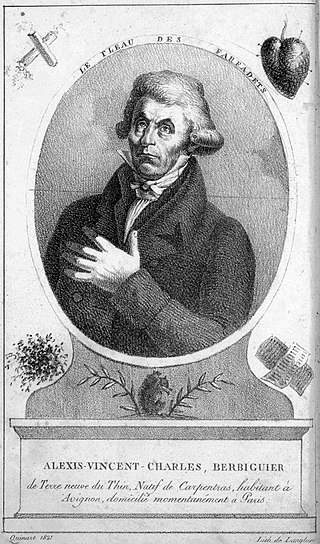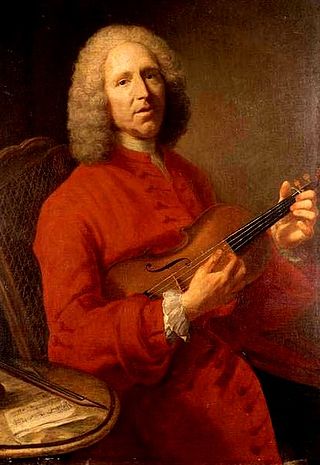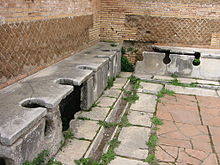
François-Marie Arouet, known by his nom de plumeVoltaire, was a French Enlightenment writer, philosopher (philosophe), satirist, and historian. Famous for his wit and his criticism of Christianity and of slavery, Voltaire was an advocate of freedom of speech, freedom of religion, and separation of church and state.

Aius Locutius, or Aius Loquens, was a Roman deity or numen associated with the Gallic invasions of Rome during the early 4th century BC.

Pascal's wager is a philosophical argument advanced by Blaise Pascal (1623–1662), seventeenth-century French mathematician, philosopher, physicist, and theologian. This argument posits that individuals essentially engage in a life-defining gamble regarding the belief in the existence of God.

Juno was an ancient Roman goddess, the protector and special counsellor of the state. She was equated to Hera, queen of the gods in Greek mythology and a goddess of love and marriage. A daughter of Saturn and Ops, she was the sister and wife of Jupiter and the mother of Mars, Vulcan, Bellona, Lucina and Juventas. Like Hera, her sacred animal was the peacock. Her Etruscan counterpart was Uni, and she was said to also watch over the women of Rome. As the patron goddess of Rome and the Roman Empire, Juno was called Regina ("Queen") and was a member of the Capitoline Triad, centered on the Capitoline Hill in Rome, and also including Jupiter, and Minerva, goddess of wisdom.

Alexis-Vincent-Charles Berbiguier de Terre-Neuve du Thym or better known as M. Berbiguier was a French author and demonologist who may have had psychosis. He was born, and died, in Carpentras in Southern France, and was the heir to an estate, which he used to finance the publication of his unusual memoirs. He is remembered chiefly for his lengthy autobiography, Les farfadets ou Tous les démons ne sont pas de l'autre monde, originally published in three volumes between 1818 and 1820. The book was handsomely illustrated by a series of lithographs whose originals were sketched by Berbiguier himself.

*Dyḗus, also *Dyḗus ph₂tḗr, is the reconstructed name of the daylight-sky god in Proto-Indo-European mythology. *Dyēus was conceived as a divine personification of the bright sky of the day and the seat of the gods, the *deywṓs. Associated with the vast diurnal sky and with the fertile rains, *Dyēus was often paired with *Dʰéǵʰōm, the Earth Mother, in a relationship of union and contrast.

La Légende des siècles is a collection of poems by Victor Hugo, conceived as an immense depiction of the history and evolution of humanity.
Clément Janequin was a French composer of the Renaissance. He was one of the most famous composers of popular chansons of the entire Renaissance, and along with Claudin de Sermisy, was hugely influential in the development of the Parisian chanson, especially the programmatic type. The wide spread of his fame was made possible by the concurrent development of music printing.
Yaguine Koïta and Fodé Tounkara were wheel-well stowaways who froze to death on a Sabena Airlines Airbus A330 flying from Conakry, Guinea, to Brussels, Belgium, on July 28, 1999. Their bodies were discovered on August 2 in the airplane's rear right-hand wheel bay at Brussels International Airport, after having made at least three return trips between Conakry and Brussels. The boys were carrying plastic bags with birth certificates, school report cards, family photographs and a letter. This letter, written in imperfect French, was widely published in the world media. Several associations commemorate Yaguine and Fodé annually on August 2 at Brussels Airport.

Hugues Jean Marie Auffray, better known as Hugues Aufray, is a French singer-songwriter and guitarist.
Deus is the Latin word for "god" or "deity". Latin deus and dīvus ("divine") are in turn descended from Proto-Indo-European *deiwos, "celestial" or "shining", from the same root as *Dyēus, the reconstructed chief god of the Proto-Indo-European pantheon.
Pierre-Paul Sirven (1709–1777) is one of Voltaire's causes célèbres in his campaign to écraser l'infame.

Naïs is an opera by Jean-Philippe Rameau first performed on 22 April 1749 at the Opéra in Paris. It takes the form of a pastorale héroïque in three acts and a prologue. The librettist was Louis de Cahusac, in the fourth collaboration between him and Rameau. The work bears the subtitle Opéra pour La Paix, which refers to the fact that Rameau composed the opera on the occasion of the Treaty of Aix-la-Chapelle, at the conclusion of the War of the Austrian Succession. Its original title was Le triomphe de la paix, but criticism of the terms of the treaty led to a change in the title.
Sagesse is a volume of French poetry by Paul Verlaine. First published in 1881, it was important in the symbolist and modernist movements, as well as inspiring many musical compositions.

Sébastien de Brossard was a French music theorist, composer and collector.

Don Quichotte à Dulcinée is a song cycle by Maurice Ravel based on the story of Don Quixote. It was first composed for voice and piano but later orchestrated. The songs are traditionally performed by a baritone or bass(-baritone). The cycle is made up of three independent pieces: Chanson Romanesque, Chanson épique, and Chanson à boire. The text was written by the librettist Paul Morand. It was composed between the years of 1932 and 1933.

Correspondances is a song-cycle for soprano and orchestra written by the French composer Henri Dutilleux in 2002–2003.
Quatre petites prières de saint François d'Assise, FP 142 is a sacred choral work by Francis Poulenc for a cappella men's chorus, composed in 1948. Written on a request by Poulenc's relative who was a Franciscan friar, the work was premiered by the monks of Champfleury.
Méditations sur le Mystère de la Sainte Trinité is a work for organ by the French composer Olivier Messiaen. It was composed from 1967 to 1969 at Messiaen's house in Pétichet.













